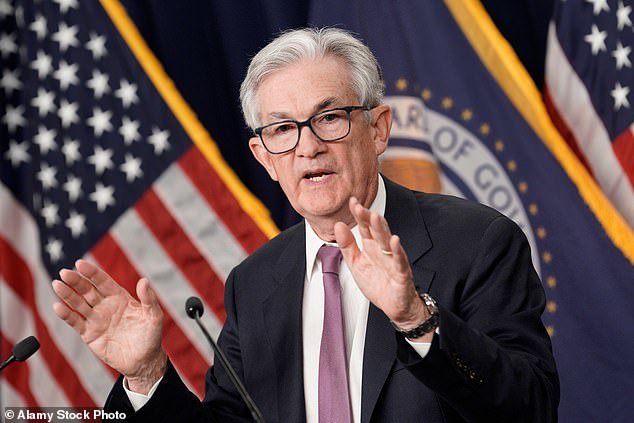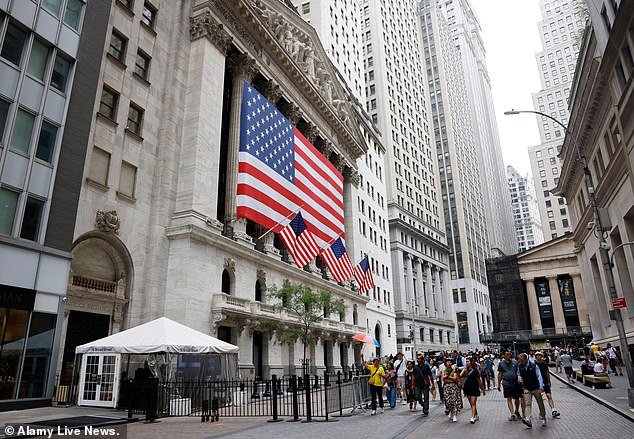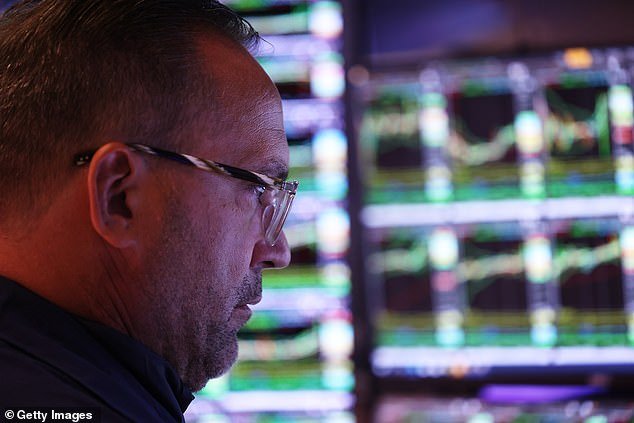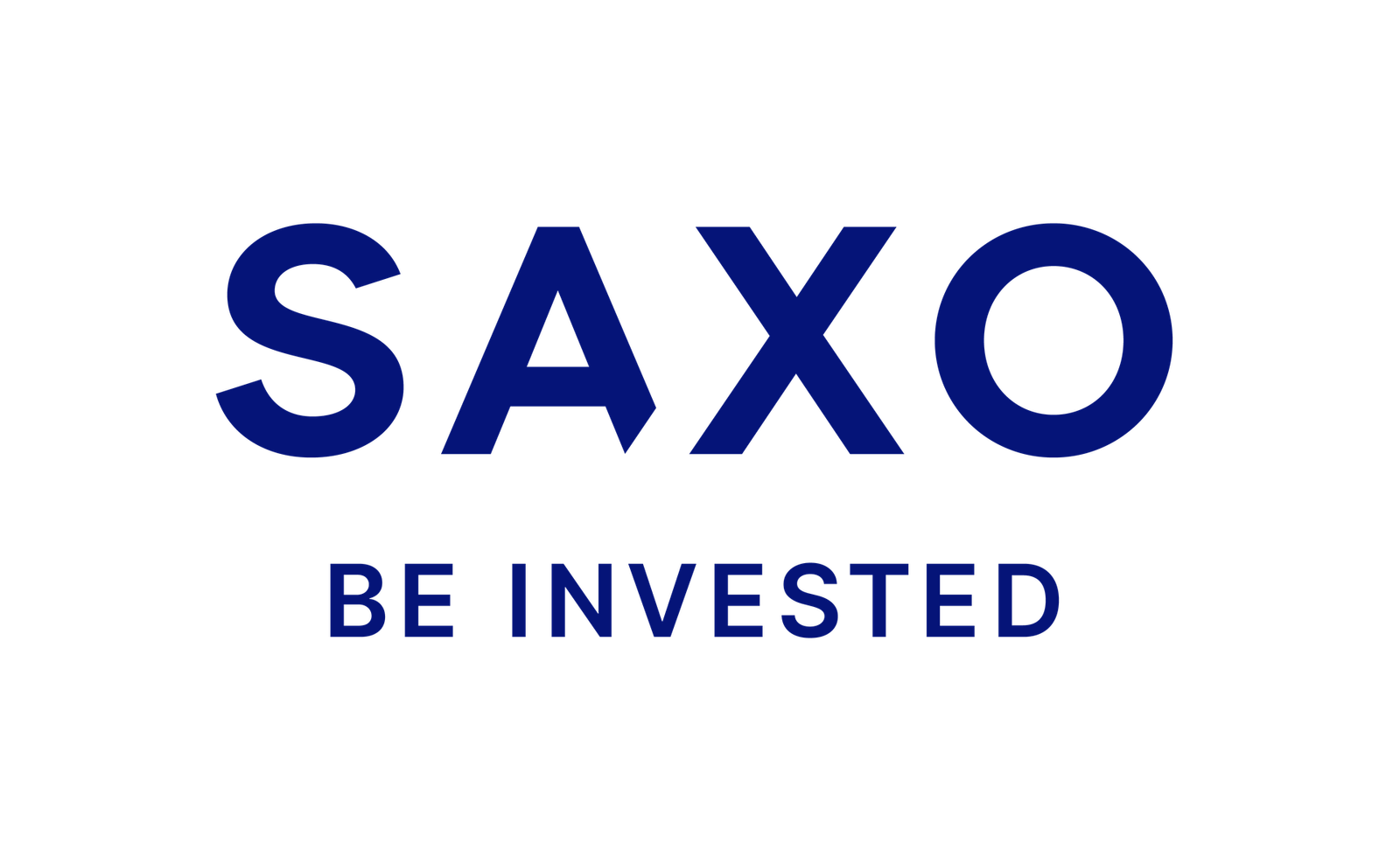When America sneezes, the rest of the world catches a cold: is the oft-quoted saying that reflects both the dominant role the US economy plays in the world and the importance of its stock and bond markets to the wealth of investors around the world.
Well, he may not have sneezed in the last few days, but he sure has a runny nose.
On Wall Street and in the City, many are worried that the US economy could slip into recession in the coming months.
Financial markets are in a state of flux, registering their most volatile movements since the pandemic began in March 2020.
Share prices of high-tech giants, including Apple, the world’s most valuable company, have plummeted.

Rates: The Federal Reserve, led by Chairman Jerome Powell (pictured), is under pressure to cut interest rates by 0.5%, rather than the expected 0.25%, at its next meeting in September.
The market capitalisation of Microsoft, the second most valuable, fell below $3 trillion (£2.3 trillion) last week.
Here in Washington, the Federal Reserve – the powerful US central bank led by Jay Powell – is under pressure to cut interest rates by half a percentage point, rather than the expected quarter of a percentage point, at its meeting next month. Fear is in the air.
Since it’s election season, it should come as no surprise that Donald Trump blames his presidential rival, Kamala Harris, for market swings, while praising his own record as an economic champion.
“Kamala Crash” was the nickname she used to refer to her recent fall. Pundits are not taking Trump’s insult against his rival too seriously, but it does raise the question of what is going on.
So what do we know? The basic point is that the economy has been booming, but now appears to be slowing down. The question, therefore, is whether it will stop and enter a recession.
That would mean it would contract for at least two consecutive quarters, or six months. Another possibility is that it would simply grow slowly for a while before picking up pace again and achieving what is called a soft landing.
As usual, experts are divided. Goldman Sachs remains on the side of those betting on a soft landing, although a few days ago it raised its recession expectations from 10% to 25%.
JP Morgan’s wealth management division agrees, acknowledging that risks have increased but concluding that “a soft landing remains our base case.”
They are two of the heavyweights of the American investment world, so it is worth listening to their opinions.
Among the pessimists is David Rosenberg, who runs his own consulting firm. In February, Rosenberg made headlines when he predicted unemployment would rise sharply to 5% and said there was an 85% chance of a recession this year.
The figure he suggested has not yet been reached, but it was a rise in unemployment from 4.1 percent to 4.3 percent that triggered the big sell-off earlier this month.

Fears: On Wall Street and in the City, many are worried that the US economy could fall into recession in the coming months
The support comes from the so-called Sahm Rule, which looks at the rate of increase in unemployment to signal the beginning of a recession.
It was created by Claudia Sahm, a former economist at the Federal Reserve. It says that when the three-month average of unemployment is 0.5 percentage points higher than the lowest point in the previous 12 months, then the economy is already in recession.
If applied to past cycles, it has worked for everyone since 1970. Those who remember economist Paul Samuelson’s famous observation that “the stock market has predicted nine of the last five recessions” should note that Sahm’s rule did not predict any downturns that did not occur.
Sahm herself modestly acknowledges that since the increase has more to do with rising labor supply than falling demand, this time may be different, but it is a major concern.
In my opinion, having watched the US economy for many years, we are seeing a classic mid-cycle slowdown.
Pauses often occur in the middle of the growth phase of the cycle. Recessions occur approximately every ten years.
In 2020, we had a pandemic-related recession, so growth should continue into the late 2020s.
It is impossible to know whether this will turn out to be a recession in the technical sense, but if it is, it is unlikely to be a severe recession.
It is fairly certain, however, that there will be a year or more of slower growth before things improve.
What it means for investors
Private investors in the UK may be wondering what this means for them and what, if any, action they should take regarding their portfolios.
In my view, a UK-based investor should have some investments in the US. Indeed, the rise in their share prices (the S&P 500 is up 80 per cent over the past five years) will have saved many British portfolios from clearly underperforming.
The FTSE 100 index rose by just 13 per cent over the same period. However, there are some modest changes that make sense.

Shocks: Financial markets are spooked, with the most volatile moves in recent days since the pandemic hit in March 2020
There are reasons to swap US stocks for bonds, and 10-year Treasury bonds yield nearly 4 percent.
These IOUs to the U.S. government, which pay a fixed interest rate for a set period, are considered very safe, so they become more desirable in times of turmoil, driving up prices. When their price rises, the “yield” or income they generate declines, and vice versa.
Recession fears have pushed prices up and yields down in recent days as investors seek a safe haven. It also makes sense to reinvest some of the money in the UK or European markets.
In Europe, price/earnings ratios (an indicator of how much investors value a company’s prospects) are lower and, consequently, stocks are better valued.
There appears to be some sort of rotation taking place in the US markets, and particularly in the technology markets, but we cannot escape the hard truth that the weakness on Wall Street has also done a lot of damage to share prices in the UK, Europe and especially Japan.
As far as the Magnificent Seven tech companies are concerned, it is also worth noting that legendary investor Warren Buffet has just sold half of his investment firm Berkshire Hathaway’s stake in Apple, adding the proceeds to its cash reserve.
In any case, while the reference to the 1960s film is a brilliant selling point, the seven are very different companies, with different long-term outlooks.
There is not much in common between an electric car manufacturer (Tesla) and an online retailer (Amazon). As for the dollar, I am sure it will weaken, but I don’t know when.
Tough months lie ahead, but the US economy has enormous potential. To a greater extent than the UK’s, it is driven by consumers. When Americans have money, they spend it.
Consumption accounts for 68% of GDP, compared with 61% in Britain. The Federal Reserve’s interest rate cuts will reduce borrowing costs, support the housing market and help them achieve this.
So the big message from the chaotic markets of the past few days is this: a slowdown is underway that may or may not be called a recession.
That should make the entire investment community, here in the United States but also in Britain, Europe and around the world, aware that American stock values have placed too much value on hope and not enough on reality.
In the short term, it makes sense to take some money off the table to make a profit, as Warren Buffett did with Apple. In the long term, you should invest in the US, whether there is a recession or not.
DIY INVESTMENT PLATFORMS

AJ Bell

AJ Bell
Easy investment and ready-to-use portfolios

Hargreaves Lansdown

Hargreaves Lansdown
Free investment ideas and fund trading

interactive investor

interactive investor
Flat rate investing from £4.99 per month

Saxo

Saxo
Get £200 back in trading commissions

Trade 212

Trade 212
Free treatment and no commissions per account
Affiliate links: If you purchase a product This is Money may earn a commission. These offers are chosen by our editorial team as we believe they are worth highlighting. This does not affect our editorial independence.
Compare the best investment account for you
Some links in this article may be affiliate links. If you click on them we may earn a small commission. This helps us fund This Is Money and keep it free to use. We do not write articles to promote products. We do not allow any commercial relationships to affect our editorial independence.
#Fears #recession #gripping #markets #worlds #largest #economy #heading #crisis